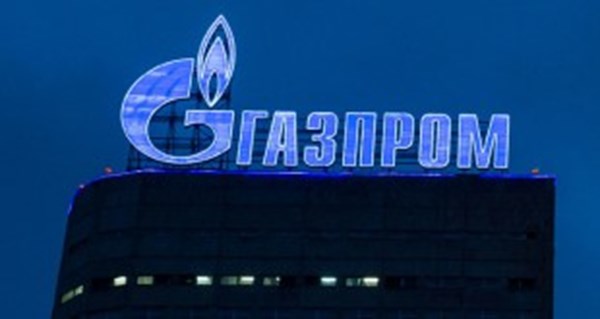Russia's Gazprom borrows pension money to pay off debt
Gazprom, which has been cut off from international capital markets as a result of a gas dispute with Ukraine, has turned to Russians’ pension savings in order to make large foreign debt repayments.
On Tuesday, for the second time since the start of the year, the Russian gas company has entered the Russian debt market and borrowed 40 billion rubles. Investors were offered three bond placements – a 15-year bond of 10 billion rubles, and two tranches of 15 billion rubles 30-year securities.
Major western investors effectively ignored the placement, according to Eduard Dzhabarov, the director of Sberbank CIB’s Russian debt market who organized the placement. Subsidiaries of European banks bought 3-4% of the securities (investing no more than 1 billion rubles).
Gazprom borrowed virtually the entire amount – roughly 32 billion rubles – from Russian citizens’ pension savings. According to Dzhabarov, 80% of the bonds were bought by the management companies of non-state pension funds.
The Russian gas monopoly was counting on these fund sources at the outset. “We focused on the pension funds which ended up in private non-state pension funds after the April transfer,” Dzhabarov explained.
“The market was closed for virtually the entirety of April and May, and in June, mostly banks were placed. That’s why the pension funds which were invested in Federal Loan Bonds and in deposits migrated to these Gazprom issuances,” he added.
The gas giant needed the funds in order to make major foreign debt repayments, Bloomberg notes.
On Wednesday, July 25, the company was due to repay loans amounting to €900 million ($1.05 billion). The funds solicited from the bond placements (€544 million at the current exchange rate) will cover 60% of the needed amount.
Initially Gazprom intended to refinance this debt in the West: in June it planned to place eurobonds in British pounds. However, it was forced to cancel the placement in light of a ruling by the Stockholm Arbitration Institute obligating Gazprom to pay $2.6 billion to Naftogaz Ukraine.
After Gazprom’s assets were seized in Switzerland and the Netherlands, and a similar ruling was issued by London’s High Court of Justice, the risk arose that the funds solicited by Gazprom in the bond placement would immediately be frozen, a source close to the company explained to Interfax.
Gazprom no longer has any way to borrow abroad, managing director Igor Laukhin of Septem Capital in Moscow told Bloomberg: “The threat of sanctions and general geopolitics do not make it possible to solicit funds on the foreign market”.
As a result, Gazprom’s plan to borrow record amounts on the foreign market were jeopardized. The Russian holding company intended to use the funds to finance the construction of gas pipelines to China, Turkey and around Ukraine.
Gazprom planned to borrow 417 billion rubles, one third of the amount needed for the construction (1.2 trillion rubles).
